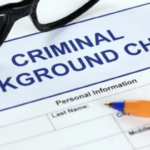Victims of Serious Crime in NSW to Be Informed About Offenders

On 27 May 2025, legislation was passed in New South Wales Parliament which provides victims of serious crime with a range of information about convicted offenders, including the lengths of their prison sentences, parole eligibility, progress through the custodial system, release dates and location, which are intended to better inform crime victims and provide them with some degree of peace of mind.
The legislation
The Victims Legislation Amendment (Victims Registers) Bill 2025 amends four pieces of legislation – the Children (Detention Centres) Act 1987, Crimes (Administrations of Sentences) Act 1999, Victims Rights and Support Act 2013 and Mental Health and Cognitive Impairment Forensic Provisions Act 1990 – augmenting the previously passed Amendment (Victims Register) Bill 2025 to facilitate the provision of real-time information to victims of crime through the NSW Victims Register (which applies to victims of adult offenders), Youth Justice Victims Register (which applies to victims of youth offenders) and Special Victims Register (which applies to victims of forensic patients).
Who is a serious offender?
The legislation applies to ‘serious offenders’, which are defined as persons who:
- Have committed murder,
- Have been sentenced to life in prison, or
- Are serving one or more sentences totalling a minimum of 12 years in prison.
Mandatory notification of registers
The NSW government says the changes will not only better inform victims of crime, but also bring more awareness to the existence and use of existing registers.
It says that past surveys have found that victims and the general public are unaware they can access the registers and/or did not know how to use them. According to the government, a number of the changes, including mandatory notification of victims that a register is available for their use, will increase their use and help give some comfort to victims.
When formulating the new reforms in the Bill, stakeholders carefully considered alternative methods of information delivery that don’t rely on an ‘opt-in’ model. However, the best solution was to create legislation that mandates agencies to notify eligible victims of serious offenders. This approach strikes a balance between providing crucial information and respecting victims’ agency and choice in the matter.
Amendments to legislation
One of the most notable amendments is to section 279 of the Crimes (Administration of Sentences) Act 1999 which stipulates that:
- There is to be a Victims Register,
- The Victims Register must include:
- The victim of an offender within the meaning of this Act if
- The offender is serving a sentence of imprisonment, and
- The victim wishes to be recorded in the Victims Register.
- The victim of an offender within the meaning of this Act if –
- The offender is serving a sentence of imprisonment for a personal violence offence by intensive correction, and
- The victim wishes to be recorded in the Victims Register.
- The victim of a high-risk offender requests to be given notice if an application is made under the Crimes (High Risk Offenders) Act 2006, and
- The victim is that of a convicted NSW terrorist offender or convicted NSW underlying terrorism offender who wishes information under the Terrorism (High Risk Offenders) Act 2017.
- The victim of an offender within the meaning of this Act if
Government support
New South Wales Minister for Corrections, Anoulack Chanthivong, said in a statement that finding the balance between re-traumatisation of the victim-survivors and providing information and infrastructure for those who want information is critical to reintegration into society. He made it clear that ‘eligible victims of serious offenders deserve the choice to be on the victims registers’ so they can make informed decisions regarding their future.
Attorney General Michael Daley echoed similar sentiments, stating that the government is focusing on community safety and victims’ wellbeing with the latest reforms, allowing ‘victim-survivors to opt-in to the relevant register and receive important updates.’
And Corrective Services NSW Commissioner, Gary McCahon, says that by giving victim-survivors back some of the power they lost in the crime, the government could ‘provide reassurance to those victims survivors who choose to receive such information and help them better plan for their safety’.
Lack of criticism
There does not appear to be a great deal of opposition to, or criticism of, the reforms.
One criticism is, of course, that those who commit crimes and are repaying, or have repaid, their debit to society through criminal penalties should be entitled to the same degree of privacy as anyone else.
It may be argued that there are already sufficient mechanisms and controls in place to regulate the conduct of offenders post-release, and the privacy intrusion is not outweighed by any great social benefits.
After all, those who commit crimes should be encouraged to reintegrate into society, and further stigmatising them through such controls can alienate and reduce the likelihood of integration.






